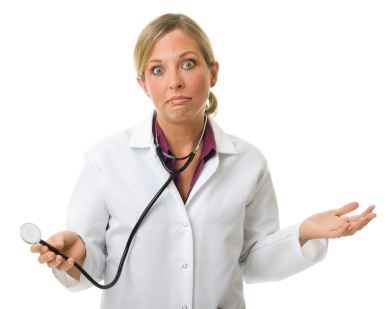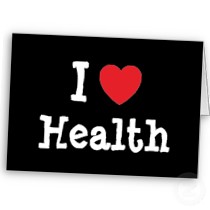Is Cholesterol Good or Bad?

Cholesterol is vital to our bodies. It is used by almost every cell in our body and serves several very important functions. It makes up a part of our cell membranes and makes them water proof. It is used to repair wounds and tears, including those that occur in arteries. It makes up 50% of our brain and nerves and plays a role in the utilization of neurotransmitters that protect against depression. It is used to make bile salts that are necessary for us to digest fats and is a precursor (something from which another substance is made) to vitamin D, our sex hormones, including estrogen, progesterone and testosterone, and adrenal hormones which regulate sugar and minerals. Furthermore it is a powerful protective antioxidant and helps to fight infection.
It has been vilified by classical medicine and the media for quite some time as the cause of plaquing in the arteries and heart attacks but the link is not nearly as strong as some would have us believe. This idea, called the lipid hypothesis was forwarded by Ancel Keys in the 1950’s who proposed that saturated fats and cholesterol in the diet causes heart attacks. In the intervening years research has established that this link between dietary cholesterol and heart problems simply does not exist. The idea that elevated cholesterol in the blood is related is still actively pursued by modern medicine, however the link is very weak. Many studies have shown that people whose blood cholesterol is low become just as atherosclerotic as people whose cholesterol is high. According to Uffe Ravnslor MD. PhD, before the introduction of the new cholesterol lowering drugs (the statins) more than 40 trials had been performed to test if cholesterol lowering can prevent a heart attack. In some of the trials the number of fatal heart attacks was lowered a little, in other trials the number of fatal heart attacks increased. Overviews of the trials have shown that when all results were taken together, just as many died in the groups that had their cholesterol lowered as in the group that didn’t. The newer statin drugs have been attributed to some small success in preventing heart attacks however this evidently isn’t through cholesterol lowering. The small protection against coronary heart disease was provided to the patient whether their cholesterol was high or whether it was low. If the statins provide a small protection against heart attacks does it really matter if it’s cholesterol related or not? Shouldn’t we all take statin drugs to have less heart attacks? The problem is of course that statins are drugs and drugs have side effects. The benefits must be weighed against the risks.
First we have to look at how the benefits were calculated. Benefits of anywhere from 24% to 47% reduction in heart attacks have been quoted from taking statin drugs. The first thing we have to look at is how the numbers were arrived at. These are relative risk numbers. The idea is that if you take the statin drug your chances of getting a heart attack are reduced by 47% for example. If you look at the actual or absolute numbers, however, you get a different picture. In the study 0.9% of the individuals who took the statin had a cardiovascular related event while 1.8% of the people who didn’t take the statin had an event. The difference between the two was 0.9 or less than 1%. Since 0.9 is half of 1.8 the reduction is 50% (47% actual numbers). In other words, the chances of a person taking the statin drug went from a 98% chance of not getting a heart attack to 97%. But in the newspaper it becomes a drastic 47% reduction. Many of these studies were founded by the drug companies that created the statin drug being tested which also must be taken into consideration. A recent meta analysis of 11 studies involving 65,229 participants concluded “The use of statins in this high risk primary prevention setting was not associated with statistically significant reduction in the risk of all cause mortality.” 2 This was for people without previous history of heart problems. At the NNT.com an analysis of all available literature on statin drugs arrive at the conclusion that for people with heart disease 96% of people who took statins saw no benefit and 4% were helped.
What about the risks? If you look at the previously mentioned functions of cholesterol, then think about what could happen if these functions are not performed, you can have a pretty good idea of some of the side effects of using statin drugs. There is a long list of side effects including rapid loss of mental clarity, muscle aching and weakness, tingling or cramping in the legs, impaired muscle formation, temperature regulation problems, liver damage, kidney failure, problems sleeping, hostility, erectile dysfunction, nerve damage, irritability, mental confusion and inability to walk. Dr. Joe Mercola cites that there are over 900 studies showing the damages of taking statin drugs.
Do the benefits of taking cholesterol lowering drugs outweigh the risks? I suppose if you are one of the 4% who didn’t die because the statin drug you took prevented a heart attack the answer is yes. On the other hand, should you look at all of the risks involved with taking statin drugs and weigh them against the benefits you also have a right to decide not to take them. But if you do make this decision it should be the result of your own observation, research and evaluation, not just because of the information that I have presented here. Simply do a search on the Internet for cholesterol myths and trace back the sources of data for yourselves.
I do know that I see a lot of people who come into my office that are suffering from symptoms that are associated with the side effects of statin drugs. My main point is that it is your body and you do have a choice. If the risks outweigh the benefits you have a right to ask your MD about pursuing other options.
Research has shown that atherosclerosis is more complicated than fats and cholesterol “settling” out in your arteries. Most experts feel there is a weakening of the arteries and subsequent damage of the arterial walls due to this weakening coupled with toxins and free radicals that affect the walls. The cholesterol being laid down is actually part of the patching process. Inflammation follows and the atherosclerosis plaquing occurs.
True solutions to fixing the arteries of the heart center around reducing toxins and free radicals in the blood and providing those things that heal and strengthen the arteries. The Cause Point Correlative Testing approach is just that. To find out what you can do to help your arteries call 260-469-6160 for an appointment.
Dr. David Murdock
3214 Mallard Cove Ln.
Fort Wayne, IN 46804











